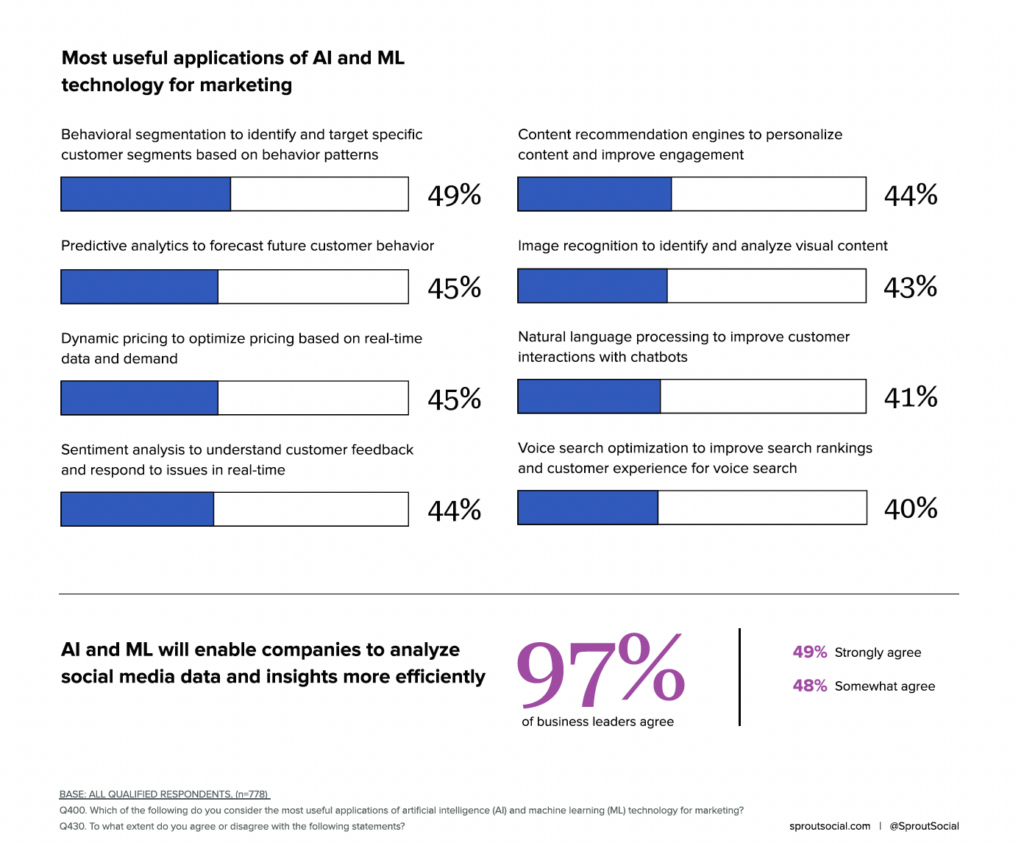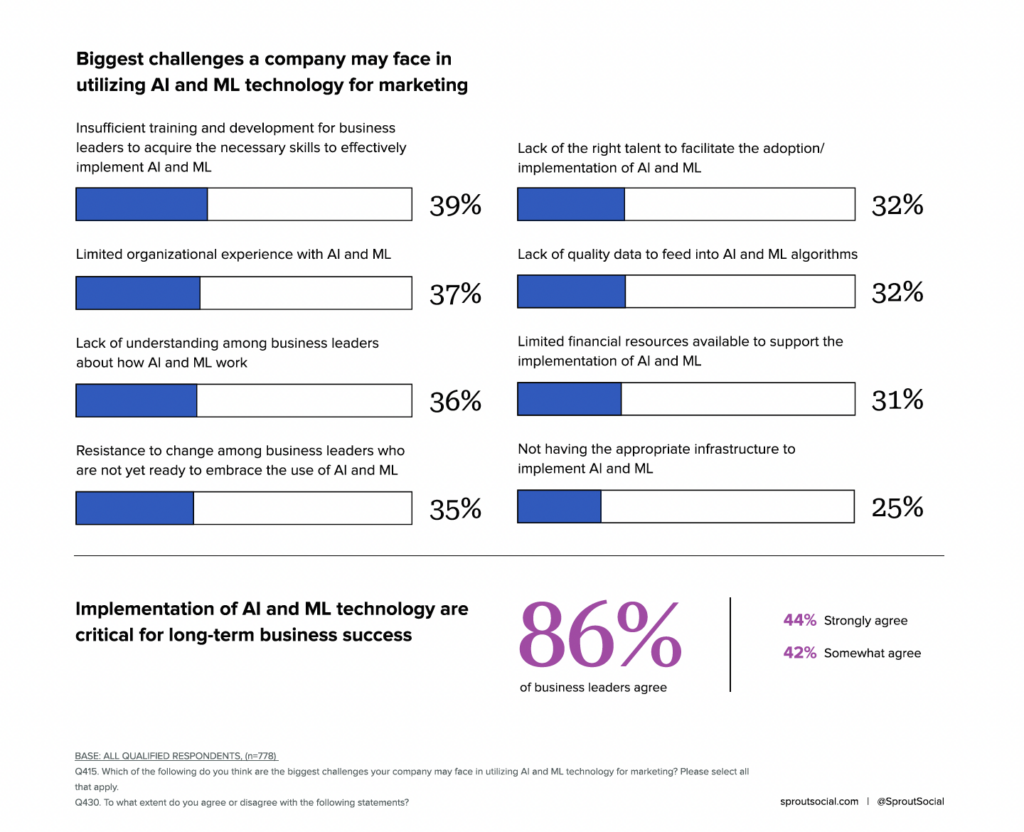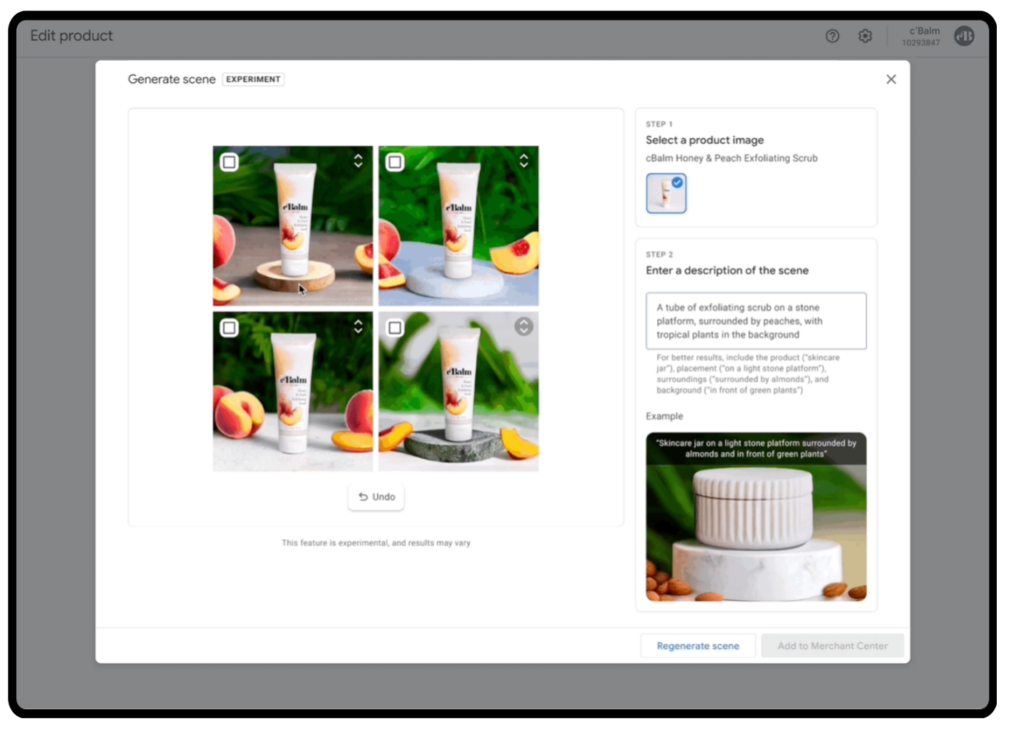Surprise! Gen Z and millennials have been busy saving, not spending. But not for their retirement. A new report by AMEX reveals that Gen Z and millennials’ considerable disposable income will be focused on creating memorable experiences, rather than trendy impulse buys. Yet Gen Z’s definition of “experience” might be more fluid than first imagined.
Gen Z: From Impulse Buys To Experience Buys
Generation Z, born between 1997 and 2012 represents about 27 percent of American consumers and has $360B in disposable income, per Experian. They’re a demographic not just known for their willingness to “vote” with their dollars on causes that they care about, like the environment and social justice, but also their trend-making methods of discovering new products and driving brand-focused social media engagement.
A new report from Amex, The Amex Trendex Millennial and Gen-Z Summer Spotlight, reveals how Gen Z and millennials are reacting to the economy: by prioritizing IRL experiences. According to the report:
- Sixty-five percent of Gen Z and millennial survey respondents have been saving money for six months to pay for summer experiences
- Eighty-seven percent of Gen-Z and millennial survey respondents stated that they would be willing to splurge on once-in-a-lifetime experiences.
Gen Z and millennial consumers in the AMEX survey listed the following costs as their budget for summer experiences, per category:
- Concerts: $391
- Music festivals: $375
- Dining out: $341
- Amusement/water parks: $335
- Sporting events: $335
- Comedy shows/festivals: $231
- Theater/cinema performances: $230
- Food Festivals: $225
But those numbers are just for in-person experiences—marketers should look at them cautiously. That’s because recent research from Deloitte reveals that about half of Gen Z consumers also see online experiences as a meaningful replacement for IRL interactions.
For Gen Z, IRL Is Also Online
According to Deloitte’s Digital Media Trends 2023 report, about 50 percent of Gen Z consumers in the US agreed with the statement “online experiences are meaningful replacements for in-person experiences.” In addition, 48 percent of Gen Z consumers surveyed stated that they “spend more time interacting with others on social media than in the physical world.”
That means Gen Z’s definition of an “experience” might include events virtual concerts or live-streamed gaming events.
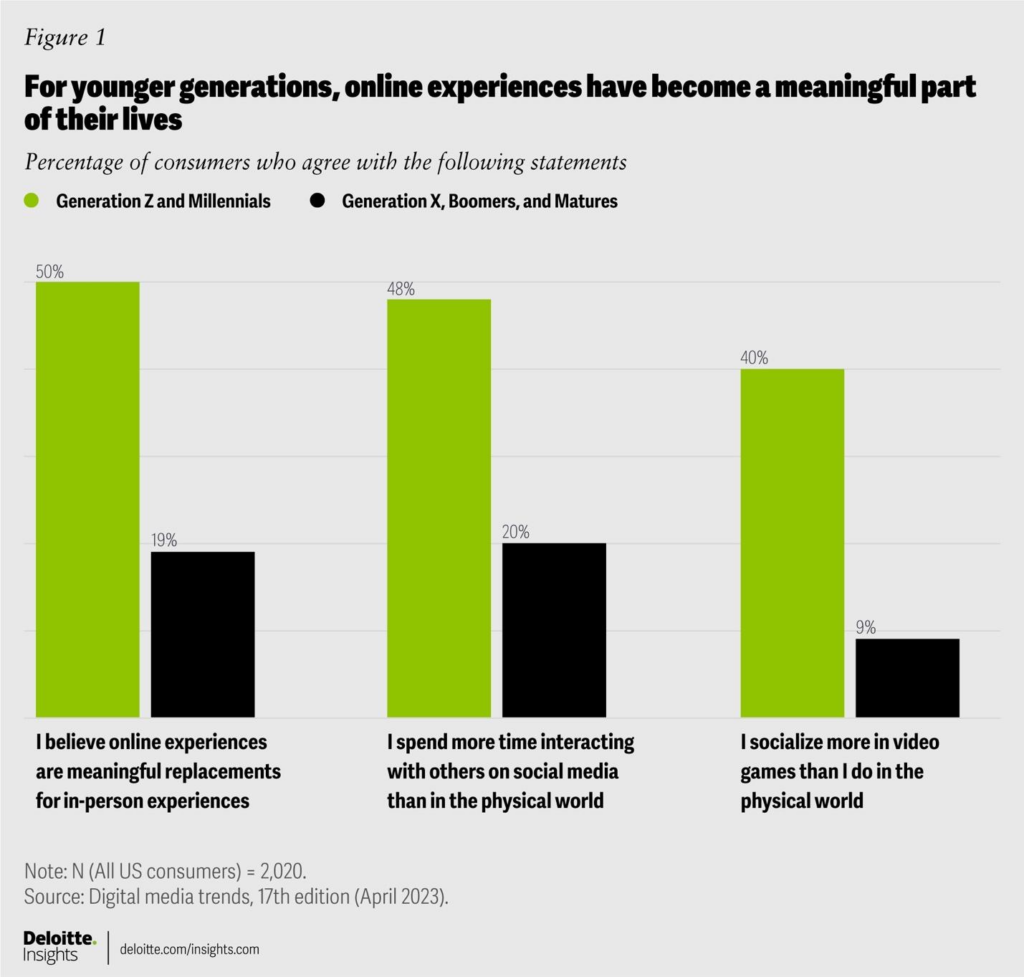
One reason may be that, according to data from the report, online gaming frequently offers Gen Z specific emotional rewards that mimic those received from positive IRL social interactions. For example, 73 percent of Gen Z respondents stated that gaming successes boosted their overall self-confidence and 76 percent reported that they saw avatar personalization as a part of their efforts to express themselves.
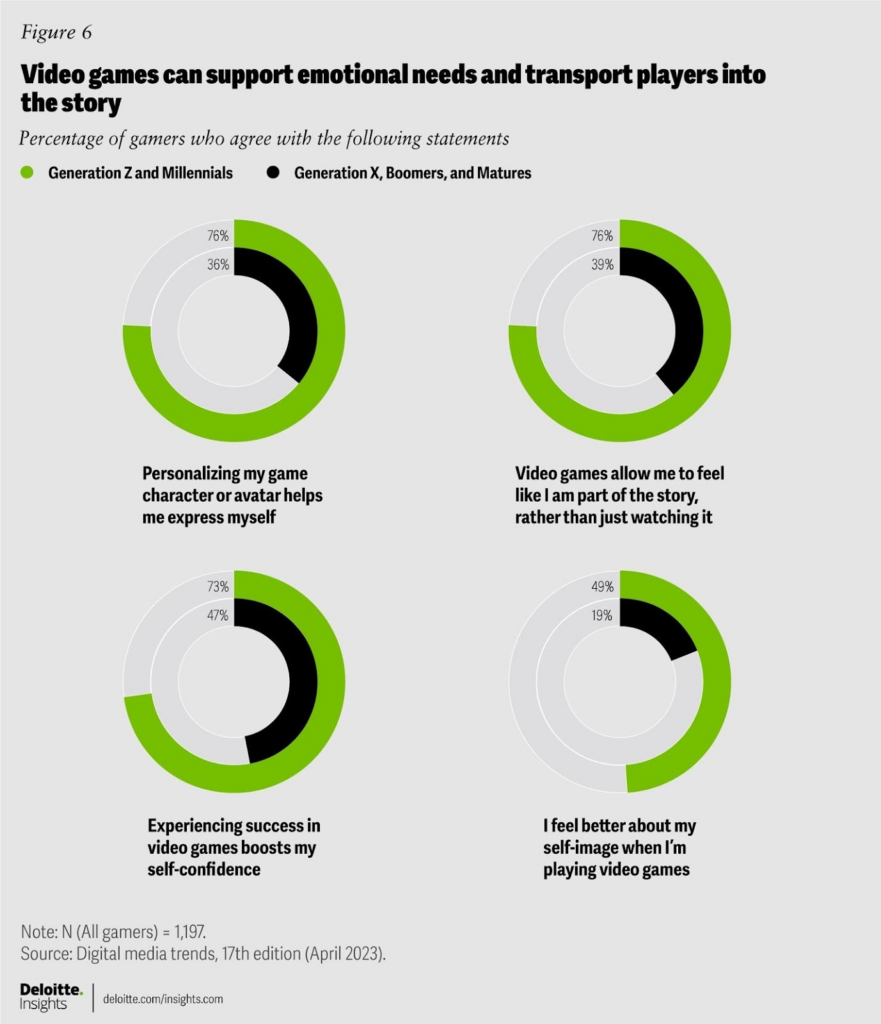
The Takeaway:
Gen Z is intent on creating memorable a memorable summer, and they’ve been saving their pennies in anticipation of buying access to experiences that they see as worth their time and money. Marketers can explore new ways of connecting with Gen Z through hybrid or fully online experiences that leverage the demographic’s love of UGC and content that taps into their generational zeitgeist with authenticity. Learn more about Gen Z’s unique characteristics as consumers.
